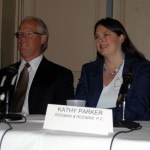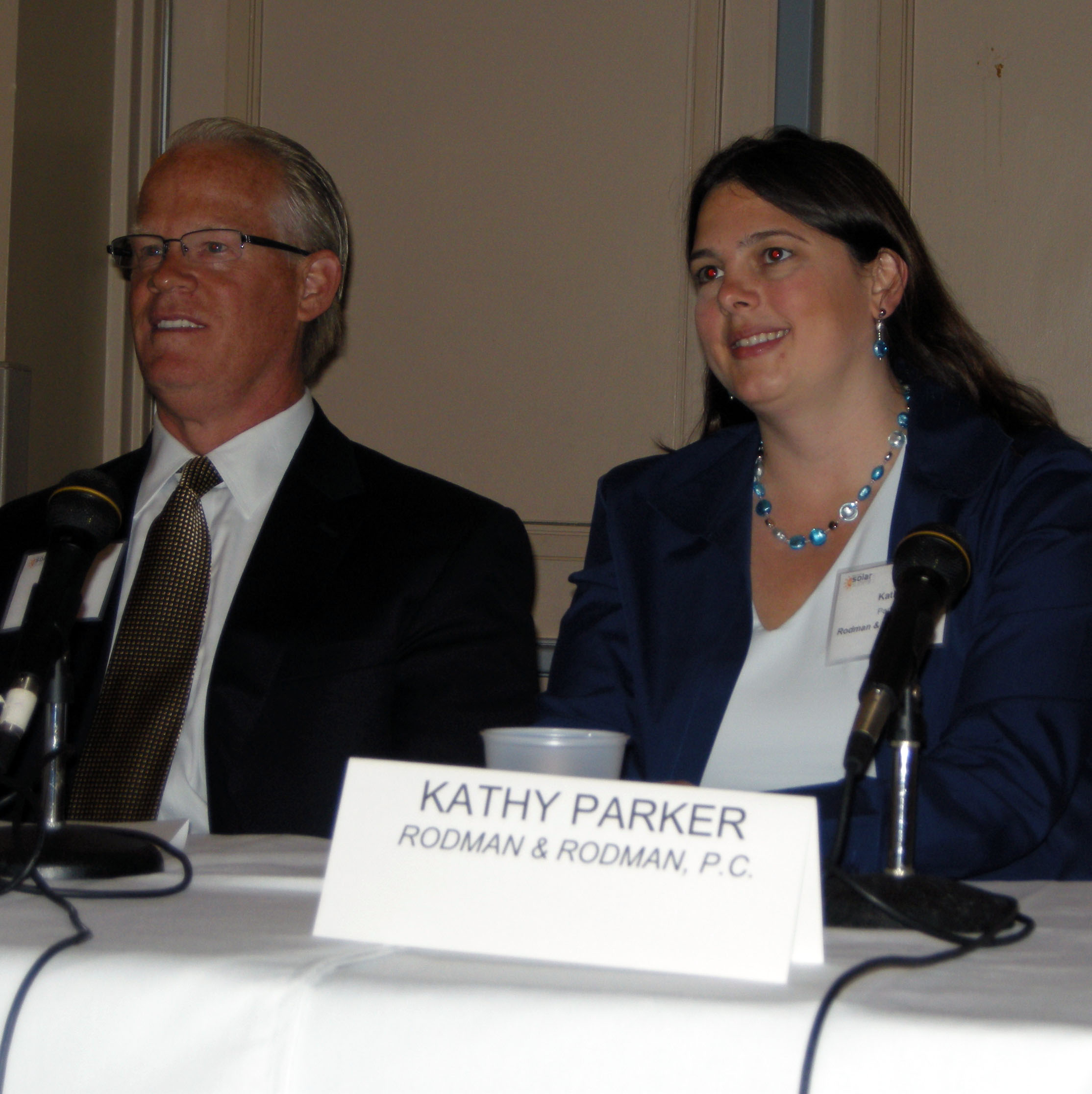
“While IRS Section 1603 Tax credits, combined with Solar Renewable Energy Credits (SRECS), created a boom in the Massachusetts Solar Industry, many solar companies are sitting on an inventory of solar panels and other materials for projects that have not begun construction by the end of the 2011 eligibility period,” Kathy Parker, CPA told a standing room only audience at the 2012 Solar Summit in Marlborough, MA, on June 13, 2012. Parker is a Partner at Rodman & Rodman, P.C, and a member of the accounting firm’s “Green Team” Renewable Energy and Cleantech Practice.
“Although the 1603 tax code provides ‘Safe Harbor’ provisions, qualifying for this protection can be a tricky process” said Parker. “Much of the tax code is vague, and qualification will depend on how materials purchases were accounted for and assigned to specific projects,” explained Parker. “Qualification is often based on subjective decisions by IRS examiners”, noted fellow “Financial Side Panel” member Craig Huntley, Principal at Solect Energy, a major Massachusetts-based solar developer.
Parker went on to explain that as 1603 grants expire and solar projects begin to get larger, financing will become more complicated. Where smaller projects were often financed by individuals and S Corporations with passive income that could take advantage of tax credits, it will become a challenge to find investors with enough of a tax appetite to invest in larger projects. Project and partner structuring to take advantage of tax incentives will become increasingly important, noted Parker.
“Commercial lenders are becoming more comfortable evaluating solar projects as reasonable risks, but as projects get bigger they become more complicated as the number of products and participants grows,” noted David Costello, Senior VP – Commercial Lending at Commerce Bank & Trust Company. “Banks will demand full disclosure on all parties involved in a project,” said Costello.
Panel moderator, Vincent Devito, Partner at law firm Bowditch & Dewey, explained that the solar industry in Massachusetts remains vibrant, but the industry will continue to rely on state and federal subsidies to attract investors. “These subsidies provide accelerated payback that can be as short as three years,” said Devito.
Summit keynote speaker, Ann Berwick, Chair – MA Department of Public Utilities, pegged present installed solar power capacity at 110 MW, citing state goals to bring capacity to 250 MW by 2017 and 400 MW by 2020.
About Rodman & Rodman P.C.
Founded in 1961 and listed in the Boston Business Journal’s “Top 50 Firms”, Rodman & Rodman, P.C. provides accounting, tax and business services to small and medium-sized companies. With a focus on strategic planning, Rodman & Rodman goes beyond traditional accounting services and takes a proactive approach when serving clients to increase, preserve and sustain clients’ financial net worth. The Rodman & Rodman Green Team is a specialized green energy and clean technology accounting and tax services practice within Rodman & Rodman, P.C. that serves “green” clients throughout the U.S. The company is Green Business Certified and in 2010 and 2011 was named one of the “Best Accounting Firms to Work For” in Accounting Today.
From business valuations, taxation, audits, fraud detection and prevention services and succession planning to a variety of accounting IT services including software selection, implementation and training, the team at Rodman & Rodman serves as comprehensive advisors to clients. For individual clients, the company offers personal advisory services such as planning for real estate transactions, obtaining financing, estate planning and retirement planning as well as planning for college education.
Rodman & Rodman, P.C. are located at 3 Newton Executive Park in Newton and 25 Braintree Hill Office Park in Braintree, MA. For more information, email info@rodmancpa.com, visit their website at www.rodmancpa.com or contact (617) 965-5959.






Follow Us!